Cost Electric

How much does it cost to maintain an electric car ?
Maintaining an electric car is generally more affordable than maintaining a traditional gasoline-powered car. However, the cost can vary depending on several factors such as the make and model of the car, its age, and the specific services required. In this article, we will discuss the different costs associated with maintaining an electric car. The initial cost of purchasing an electric car may be higher than that of a conventional car due to the expensive battery technology. However, the long-term savings in fuel and maintenance costs often outweigh this initial expense. One significant cost associated with owning an electric car is the eventual replacement of the battery pack. The lifespan of an electric car's battery can range from 100,000 miles to 200,000 miles or more, depending on usage and charging habits. When the time comes for a replacement, it can be quite costly. The price varies widely based on the vehicle's make and model, but it typically ranges from $5,000 to $15,000. Electric cars have fewer moving parts than traditional cars, which means they require less maintenance over time. Tire rotation and replacement are necessary for both electric and gasoline-powered vehicles. The cost will depend on the type of tire you choose and your driving habits. Since regenerative braking systems are used in most electric cars, brake pads and rotors last longer than those in traditional cars. Therefore, brake service is less frequent and less expensive for electric cars. Electric cars do not require engine air filters like gasoline-powered cars since they don't have engines that burn fuel. This eliminates the need for regular filter changes and their associated costs. Electric cars do not have engines that require oil changes like gasoline-powered cars do. This eliminates the need for regular oil changes and their associated costs. Electric cars do not have cooling systems like traditional cars do since they don't produce exhaust heat from combustion engines. This eliminates the need for regular coolant system maintenance and its associated costs. There are also other costs associated with owning an electric car that should be considered: If you don't have access to a public charging station near your home or workplace, you may need to install a charging station at your residence or business location. The installation cost can vary widely based on several factors such as the type of station you choose and whether any electrical upgrades are needed. Electricity prices vary by region and provider, so it's essential to research local rates before purchasing an electric car. Additionally, if you plan to charge your car at home overnight when electricity rates are lower, you could save money on energy costs compared to charging during peak hours. In conclusion, while the initial cost of purchasing an electric car may be higher than that of a conventional car due to the expensive battery technology, the long-term savings in fuel and maintenance costs often outweigh this initial expense. Overall, maintaining an electric car is generally more affordable than maintaining a traditional gasoline-powered car due to fewer moving parts and less frequent maintenance requirements.

How much does a Series Hybrid Electric Vehicle cost ?
This text discusses the cost of series hybrid electric vehicles (HEVs). The average price range of a new series HEV is between $20,000 and $40,000. Several factors affect this price range, including brand, model, features, battery pack size, and location. The article also highlights other factors that can influence the cost of a series HEV, such as fuel efficiency, electric motor power, driving range, and charging infrastructure availability. In conclusion, while series HEVs may have a higher upfront cost compared to traditional gasoline vehicles, they offer long-term savings on fuel and maintenance expenses. It is essential to research and compare different models based on specific needs and budget when considering purchasing a series HEV.

Are electric cars more expensive than gasoline cars ?
Electric cars, also known as EVs, have been gaining popularity due to their eco-friendly nature and lower operating costs. However, the initial purchase price of an electric car is often higher than that of a traditional gasoline-powered car. In this article, we will explore the cost differences between electric and gasoline cars. ## Upfront Cost **Electric Cars:** - Higher upfront cost due to expensive battery technology and limited production scale. - Prices vary depending on the model, brand, and range. - Some governments offer incentives and tax credits to offset the high initial cost. **Gasoline Cars:** - Generally less expensive upfront compared to electric cars. - Wide variety of models and brands available at different price points. - No government incentives or tax credits for purchasing a gasoline car. ## Operating Costs **Electric Cars:** - Lower operating costs due to cheaper electricity rates compared to gasoline prices. - Maintenance costs are generally lower since there are fewer moving parts in an electric motor. - Battery replacement can be costly, but it is not expected until after several years of use. **Gasoline Cars:** - Higher operating costs due to fluctuating gasoline prices and regular maintenance requirements. - More frequent oil changes, tune-ups, and other routine maintenance tasks. - Fuel efficiency varies widely among gasoline cars, affecting overall operating costs. ## Depreciation **Electric Cars:** - Depreciation rate may be higher for electric cars due to rapid advancements in technology and changing consumer preferences. - Some early adopters may experience significant depreciation if they choose to sell their electric car before its battery lifespan ends. **Gasoline Cars:** - Generally slower depreciation rate compared to electric cars. - Well-maintained gasoline cars can retain their value for longer periods. ## Resale Value **Electric Cars:** - Resale value depends on factors such as battery health, range, and charging infrastructure availability. - As more people switch to electric cars, the demand for used electric vehicles may increase, potentially boosting resale values. **Gasoline Cars:** - Resale value is typically more predictable and stable compared to electric cars. - Factors such as fuel efficiency, brand reputation, and vehicle condition affect resale value. In conclusion, while electric cars may have a higher upfront cost, they offer lower operating costs and potentially better resale value in the future. It's essential for consumers to consider both short-term and long-term costs when deciding between an electric or gasoline car.

How does the maintenance cost of fuel vehicles compare to that of electric cars ?
The text discusses the comparison of maintenance costs between fuel vehicles and electric cars. It mentions that fuel vehicles typically require regular maintenance such as oil changes, air filter replacements, and spark plug checks. On the other hand, electric cars generally require less frequent maintenance than fuel vehicles. They do not have traditional engine oil, so oil changes are not necessary. However, they still require regular checks on the battery, brakes, and suspension system. Fuel vehicles often require more frequent maintenance due to their complex internal combustion engines and various fluids that need to be changed regularly. This includes oil changes every few thousand miles, as well as other routine services like brake pad replacements and tire rotations. Electric cars typically require less frequent maintenance because they have simpler drivetrains with fewer moving parts. Battery health is an important aspect of electric car maintenance, but it generally does not require as many check-ups as a traditional engine would. The cost of parts and labor for fuel vehicles can vary widely depending on the make and model of the vehicle, as well as the specific services required. However, fuel vehicles often have more expensive repairs due to their complexity and the number of moving parts involved. While electric cars may initially have higher upfront costs for batteries and specialized components, their maintenance costs tend to be lower in the long run because they require less frequent servicing and have fewer parts that need replacing.

How does the cost of installing and using electric vehicle charging stations compare to traditional fueling stations ?
The transition from traditional combustion engines to electric vehicles significantly impacts fueling infrastructure, with costs associated with installing and using electric vehicle charging stations differing from those of traditional fueling stations. Initial installation for EV charging might be higher due to electrical upgrades required, but operational costs are generally lower than for traditional fueling stations. User costs for EV charging can also be more predictable and potentially lower when taking advantage of off-peak electricity rates.
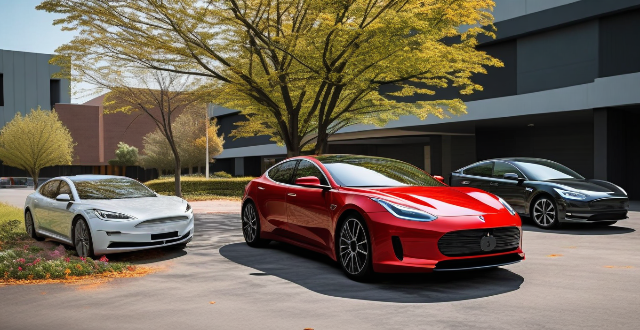
What are the advantages of fuel vehicles over electric cars ?
Fuel vehicles have several advantages over electric cars, including longer range, faster refueling time, more affordable upfront cost, more accessible charging infrastructure, and lower maintenance costs.
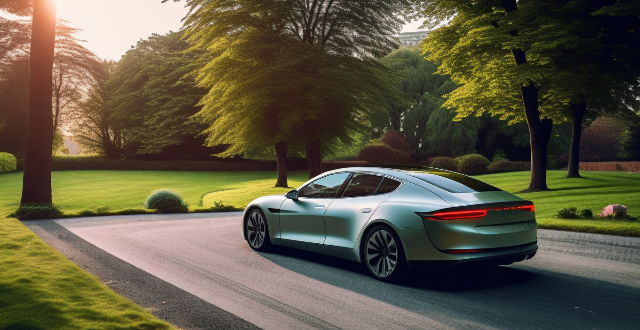
Is it worth investing in an electric car ?
Investing in an electric car requires consideration of advantages like environmental benefits and lower operating costs, as well as disadvantages such as limited range and higher upfront costs. Factors to consider include driving habits, financial situation, environmental concerns, and future developments. By carefully weighing these factors, one can determine if an electric car is the right choice.

How do electric car batteries work ?
Electric car batteries are the powerhouse of electric vehicles (EVs). Here's a detailed explanation: 1. Basics of an Electric Car Battery 2. Charging Process 3. Discharging Process (Driving the Car) 4. Battery Management System (BMS) 5. Benefits and Challenges
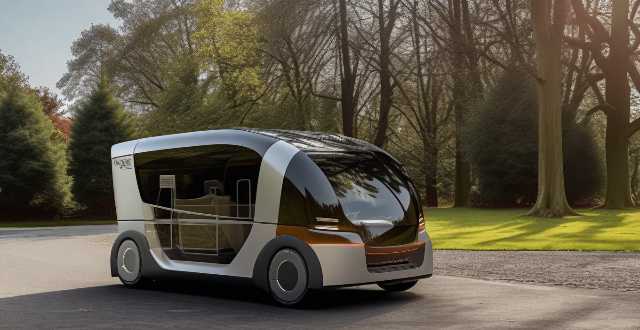
What is a Series Hybrid Electric Vehicle (SHEV) ?
A Series Hybrid Electric Vehicle (SHEV) is a type of hybrid vehicle that uses an internal combustion engine and an electric motor to power the wheels. The engine generates electricity to charge the battery pack or provide power to the electric motor, which then drives the wheels. Some SHEVs have regenerative braking systems that capture energy during braking and use it to recharge the battery pack. Advantages of a SHEV include improved fuel economy, reduced emissions, increased torque, and quiet operation. Disadvantages include complexity, weight, limited range, and higher cost.

How does a Series Hybrid Electric Vehicle compare to a Parallel Hybrid Electric Vehicle ?
Comparison between Series Hybrid Electric Vehicle and Parallel Hybrid Electric Vehicle highlights the differences in power transmission, battery dependency, fuel efficiency, performance, cost, complexity, and regenerative braking capabilities of both types. The series hybrid is more efficient for city driving, while the parallel hybrid suits highway driving better. The choice depends on the user's driving habits and needs, with both offering environmental and economic benefits over traditional vehicles.
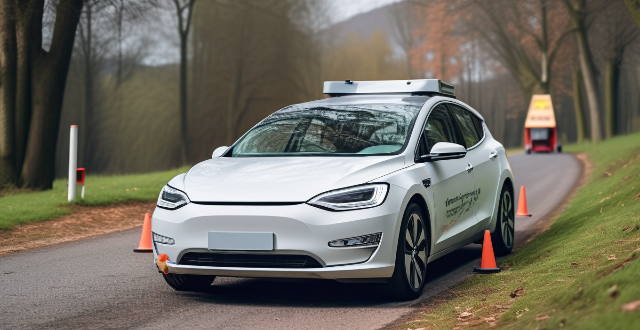
How do maintenance costs compare between electric and traditional cars ?
The text compares the maintenance costs of electric cars and traditional gasoline-powered vehicles. Electric cars don't require oil changes but may need battery replacement, which is costly. They use regenerative braking, reducing brake wear. Despite their weight causing faster tire wear, they have a simplified cooling system and minimal transmission maintenance. Traditional cars require regular oil changes, engine maintenance, and frequent brake replacements. They generally weigh less, resulting in slower tire wear but have a complex cooling system and multi-speed transmissions that need regular maintenance. Overall, electric cars have lower maintenance costs due to fewer moving parts and no need for certain maintenance items like oil changes and engine tune-ups. However, individual driving habits and local repair costs should be considered when comparing maintenance expenses.
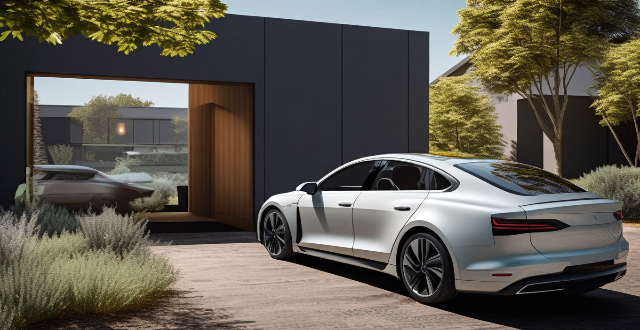
Is it more cost-effective to drive an electric or gasoline-powered car ?
In this article, we explored the cost-effectiveness of driving an electric car versus a gasoline-powered car. While electric cars may have a higher initial cost, they offer several advantages in terms of cost-effectiveness over the long term. Lower maintenance costs, cheaper fuel costs, and potential tax incentives make electric cars a more economical choice for many consumers. Additionally, electric cars have a smaller environmental impact compared to gasoline-powered cars, making them a more sustainable option for transportation.
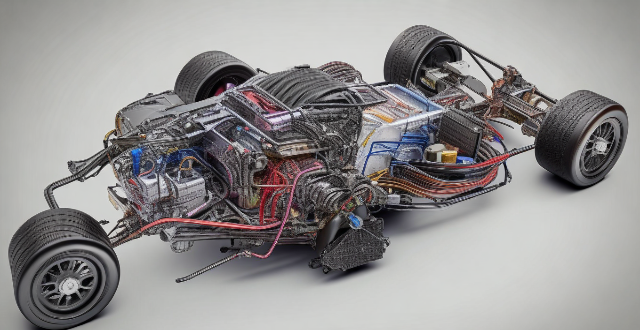
How do electric cars compare to hybrid cars ?
Electric cars run solely on electricity and produce zero emissions, while hybrid cars combine a gasoline engine with an electric motor for improved fuel efficiency. Electric cars offer environmental benefits and lower operating costs but have limited range and long charging times. Hybrids provide a balance between gasoline-powered vehicles and electric cars, with improved fuel efficiency and no range limitations but still rely on gasoline and produce emissions. The choice between the two often depends on individual needs and preferences.
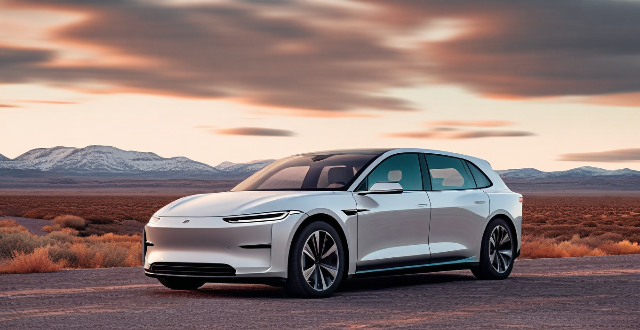
What is the range of an electric car ?
The range of an electric car, or the distance it can travel on a single charge, depends on factors such as battery size, driving conditions, and energy efficiency. Larger batteries generally provide longer ranges, but they also increase weight and cost. Driving at high speeds, in cold weather, or uphill can reduce range, while efficient powertrain systems use less energy for propulsion. The average range of electric cars is increasing over time, with many offering between 150-300 miles per charge under ideal conditions. Some high-end models boast even greater ranges, exceeding 400 miles on a single charge.
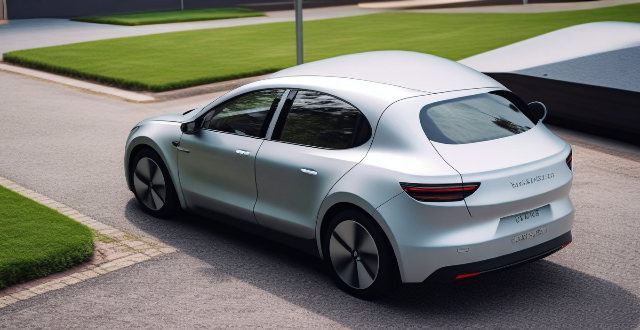
What challenges need to be addressed for widespread adoption of electric vehicles ?
The challenges for widespread adoption of electric vehicles (EVs) include inadequate charging infrastructure, limited battery technology, high cost, environmental impact during production, and lack of public awareness. Governments and private companies must invest in building a comprehensive network of charging stations, while researchers and manufacturers should focus on developing advanced battery technologies. Incentives such as tax credits, rebates, and subsidies can make EVs more affordable. Manufacturers need to adopt sustainable practices to reduce the environmental impact of their products. Finally, governments and organizations should launch awareness campaigns and educate the public about the benefits of electric cars.
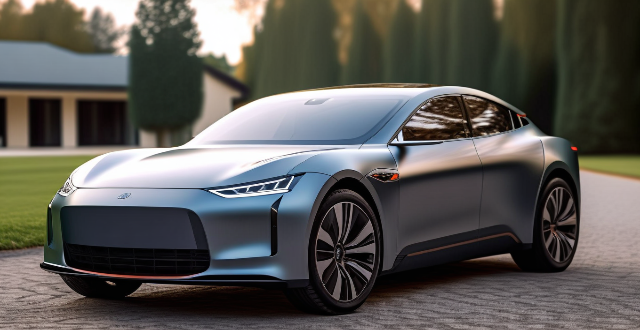
What are the benefits of owning a parallel hybrid electric vehicle (PHEV) ?
Owning a parallel hybrid electric vehicle (PHEV) offers numerous benefits, including reduced emissions and conservation of fossil fuels, leading to environmental advantages. Economically, PHEVs provide fuel cost savings and potential tax incentives. They also offer performance benefits such as silent operation, regenerative braking, and instant torque. Additionally, PHEVs often come with advanced technology and features, preparing owners for a future with more electric vehicles. Overall, PHEVs combine environmental responsibility, economic savings, performance enhancements, and technological innovation, making them an attractive sustainable mobility option.
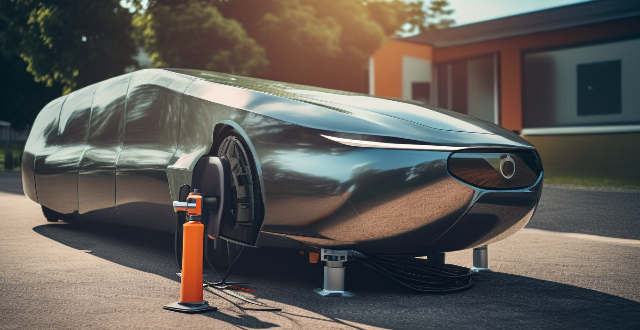
What are the pros and cons of owning an electric car ?
The pros of owning an electric car include environmental benefits, lower operating costs, quiet and smooth rides, tax incentives, and energy independence. On the other hand, cons include limited driving range, longer charging times, higher upfront costs, limited charging infrastructure, and potential battery degradation and replacement issues.
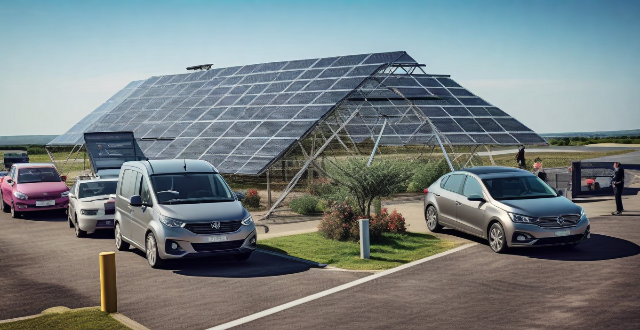
What is the impact of charging network availability on the adoption of electric vehicles ?
The impact of charging network availability on the adoption of electric vehicles is significant. Factors such as range anxiety, charging time, and the cost of building and maintaining charging infrastructure can influence consumer confidence in EVs. Strategies to improve charging network availability include public-private partnerships, incentives and regulations, and innovation in charging technology. A well-developed charging network can alleviate concerns about EVs and accelerate their adoption.

What is the average cost of using a super fast charging station ?
The average cost of using a super fast charging station can vary depending on several factors, such as location, time of day, and type of vehicle. Urban areas tend to have higher prices due to increased demand and limited availability of charging infrastructure, while rural or less populated areas may offer lower rates. Many charging stations implement time-of-use pricing, with off-peak hours during late night or early morning being cheaper than peak hours during rush hour traffic. The size of your electric vehicle's battery and its maximum charging capacity can also affect the overall cost, with larger batteries requiring more energy to charge and potentially resulting in higher costs. The estimated range for the average cost of using a super fast charging station is $0.20 - $1.00 per kWh, but actual costs may vary widely depending on local conditions and specific charging providers.

Can you drive a parallel hybrid electric vehicle (PHEV) on electricity alone ?
This article discusses the capabilities of parallel hybrid electric vehicles (PHEVs) and their ability to operate solely on electricity. It explains that PHEVs have an electric-only mode that allows them to drive without using the internal combustion engine, but this mode is typically limited to lower speeds and lighter load conditions. The article also highlights the benefits of electric-only driving, such as reduced emissions, quieter operation, and improved fuel efficiency. However, it notes that several factors can affect the electric-only range of a PHEV, including battery size, driving conditions, vehicle load, and tire pressure. Overall, the article emphasizes the importance of understanding your PHEV's capabilities and limitations to maximize its potential for eco-friendly driving.
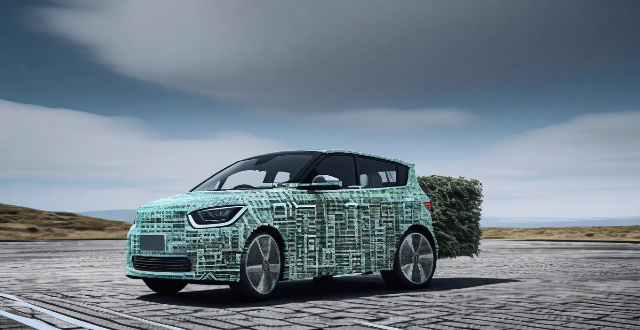
Can you explain how battery technology works in electric cars ?
Battery technology is a crucial component of electric cars, determining their range, performance, and efficiency. The basic components of a battery pack include the anode, cathode, electrolyte, and separator. During charging, lithium ions move from the cathode to the anode via the electrolyte, while discharging involves the movement of lithium ions in the opposite direction. Key factors affecting battery performance include capacity, energy density, power density, cycle life, and temperature management. By optimizing these aspects, manufacturers aim to improve the overall capabilities of electric vehicles.

How can I maximize the lifespan of my electric vehicle's power battery ?
Maximizing the Lifespan of Your Electric Vehicle's Power Battery: Electric vehicles (EVs) are becoming increasingly popular due to their eco-friendliness and cost-effectiveness in the long run. However, one of the most crucial components of an EV is its power battery, which requires proper maintenance to ensure a longer lifespan. Here are some tips on how you can maximize the lifespan of your electric vehicle's power battery: 1. Avoid extreme temperatures: The performance and lifespan of your EV's power battery can be significantly affected by extreme temperatures. Both high and low temperatures can cause damage to the battery cells, leading to reduced capacity and shorter lifespan. Therefore, it is essential to store and operate your EV within moderate temperature ranges whenever possible. 2. Maintain proper charging habits: Proper charging habits play a crucial role in maximizing the lifespan of your EV's power battery. It is recommended to maintain a moderate state of charge (SOC) and avoid frequent deep discharges and full charges. 3. Regular maintenance: Regular maintenance is essential for ensuring the longevity of your EV's power battery. This includes monitoring the battery's health, checking for any signs of damage or leakage, and addressing issues promptly. 4. Drive efficiently: Driving efficiently can also help maximize the lifespan of your EV's power battery by reducing strain on the battery and improving overall energy efficiency.

What is the typical cost difference between a permanent magnet motor and an equivalent size induction motor ?
Permanent magnet motors (PMMs) and induction motors (IMs) are two common types of electric motors used in various applications. The cost difference between them is often a significant factor in deciding which one to use. PMMs are known for their high efficiency, compact size, and low noise levels, while IMs are simpler and more robust. The cost difference depends on factors such as size, power rating, materials used, and manufacturing processes. Generally, PMMs are more expensive than IMs of equivalent size due to material costs, manufacturing processes, efficiency and performance requirements, and market demand and availability. When choosing between these two types of motors, it is essential to consider both the technical requirements and budget constraints of your specific application.
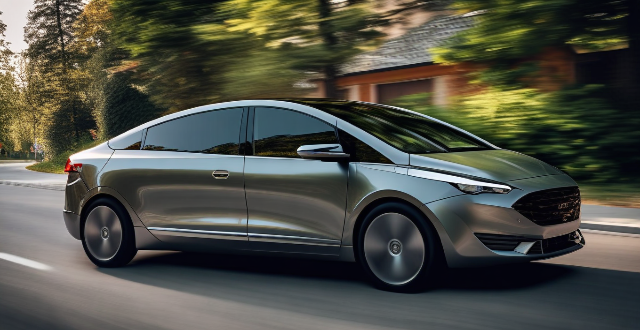
How does a Compound Hybrid Electric Vehicle work ?
A compound hybrid electric vehicle (CHEV) is a type of hybrid vehicle that combines the power of an internal combustion engine (ICE) with two or more electric motors, aiming to improve fuel efficiency, reduce emissions, and increase overall performance. The system intelligently manages multiple power sources to provide an efficient, powerful, and environmentally friendly driving experience.
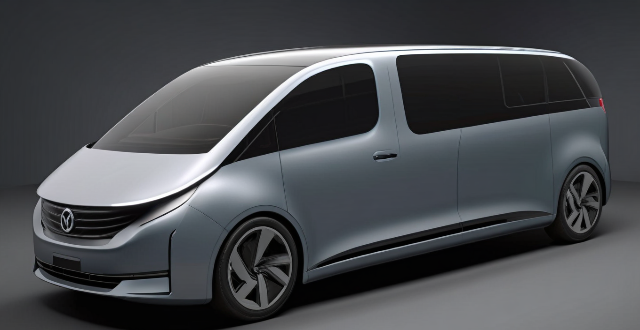
How efficient is a Series Hybrid Electric Vehicle ?
Series hybrid electric vehicles (SHEVs) combine internal combustion engines and electric motors to power wheels, offering efficiency benefits through regenerative braking, engine optimization, and electric drive. However, added weight, system complexity, and battery depletion can be drawbacks. The efficiency of SHEVs hinges on design and driving habits.
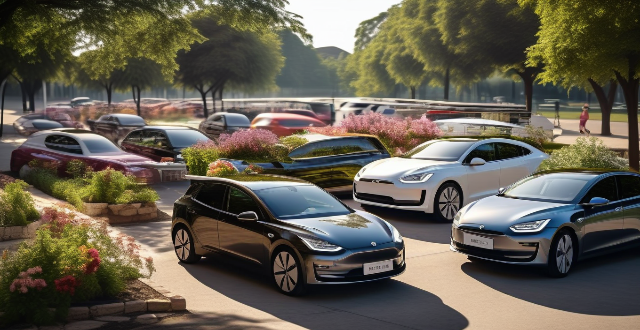
What are the best electric cars on the market ?
The article discusses the top electric cars on the market, including the Tesla Model S, Chevrolet Bolt EV, Nissan Leaf Plus, Audi e-tron, and Hyundai Kona Electric. Each car is described in terms of its range, price, features, and performance. The article concludes that there are many great electric cars available, each offering a unique combination of features and benefits to meet different needs and budgets.
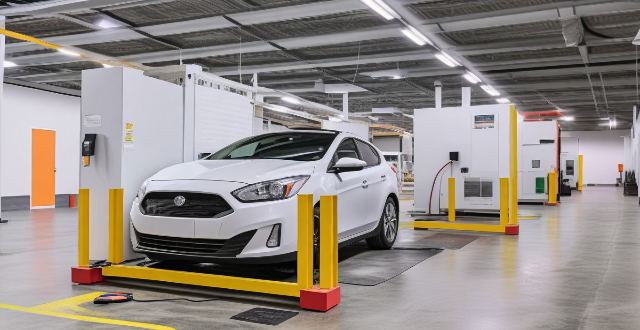
How does an electric car work ?
Electric cars, or EVs, are powered by electricity stored in a battery pack, which is used to power an electric motor that turns the wheels. The process includes starting the car with power from the battery to the controller, which then sends electricity to the motor for acceleration. Braking involves regenerative braking that captures energy to recharge the battery. Charging the battery requires plugging into an external power source managed by an onboard charger. Electric cars boast higher energy efficiency, lower operating costs, reduced environmental impact, quieter operation, and simpler maintenance compared to traditional gasoline vehicles.

How much does fiber optic broadband cost ?
The cost of fiber optic broadband varies based on provider, location, speed, and additional fees. It is recommended to compare plans from different providers and consider all associated costs before making a decision.
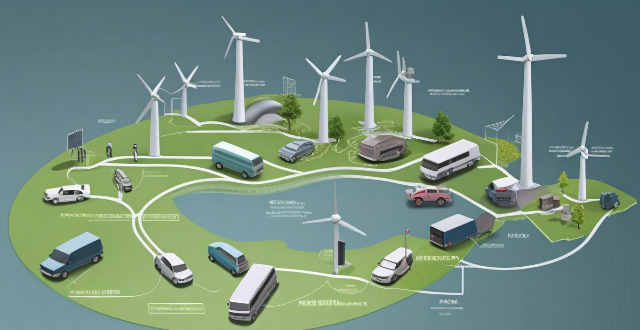
How does the cost of building a charging network compare to traditional gas stations ?
Building a charging network for electric vehicles and traditional gas stations involve different costs and considerations. The initial investment may be higher for a charging network due to the need for electrical infrastructure, while operational costs may be lower due to lower electricity costs compared to fuel procurement. Additionally, the scalability and growth potential of a charging network may be higher as the market share of EVs continues to increase.
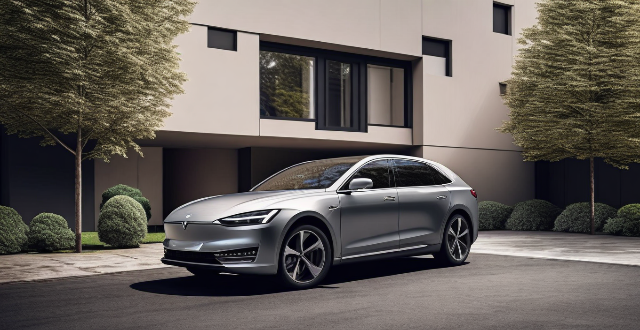
Can you drive a hybrid car in electric mode only ?
Hybrid cars offer the fuel efficiency of electric vehicles and the range of gasoline-powered cars. Some hybrids can drive in electric mode under certain conditions, such as battery charge level and speed. Advantages include reduced emissions and a quieter driving experience, but there are also drawbacks like limited range and slower acceleration. Examples include the Toyota Prius and Honda Insight.